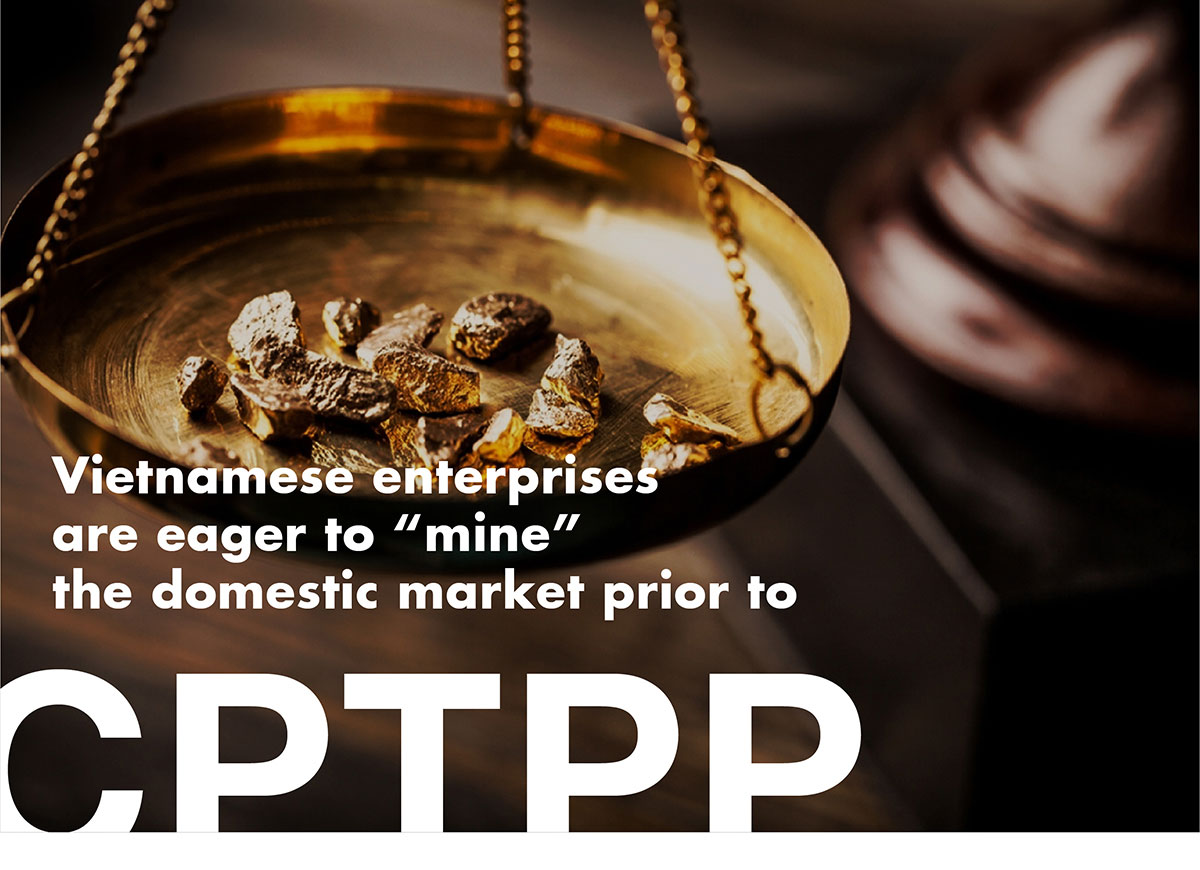Admittedly, Vinfast, as its name suggests, has fast approached the domestic by launching electric scooters before the first car models are finished.
It is very difficult to measure the impacts of CPTPP on Vietnam’s economy when everything and every country signing in the agreement is rapidly transforming to gain benefits to the full. However, once countries participate in CPTPP, goods will be transported among these countries like going through non-wall houses. Tariffs are entirely removed.

While waiting for the launch of “Made in Vietnam” car models, Vinfast has fast conquered the domestic market with electric scooters.
Upon the tariff removal, as a certain, transportation of goods from Vietnam to CPTPP countries or vice versa are equally easy. Thus, while focusing on approaching foreign markets, Vietnamese enterprises are easily defeated in their own country with a total population of more than 95.5 million people who are young at the consumption age.
Thus, “mining” the domestic market right before the CPTPP takes effect is what a number of Vietnamese enterprises are doing, even considering as the number-one priority.
2 years ago, well-established in the international market, leaders of An Phat Holdings determined not to ignore the domestic market, especially when domestic production is meeting only 76% of consumption demand. An Phat Holdings planned to joint venture with a flexible packaging plant with capacity of 100 million meter per annum at that time. Upon completion, the company will find it easier to exploit the domestic market.

Needless to say, back to domestic market is definitely a careful strategy of the owner of An Phat Holdings. Right before CPTPP takes effect, An Phat Holdings urgently heads for domestic market with more than 80 million people. With this strategy, An Phat is still the pioneer in the domestic market while its competitors are lagging behind for nearly 2 months. Moreover, An Phat does not develop its own distribution system but decides to cooperate with retailer giant Vinmart to rapidly spread their products over the market before imported products enter into Viet Nam.
The building using plastic wallboard by AnPro of An Phat Holdings

At the age of 15, right before the CPTPP takes effect, Vicostone starts exploring the domestic market after achieving success in over 40 countries.
Vicostone has managed to conquer the strictest markets, so worries over the capability of the company is unnecessary. Despite great success in the international market, it is until 2018 that the company officially returned to conquer the domestic consumers. Given the current domestic supply accounting for only 5%, the company is promoting domestic consumption with an expected increase by 10-20% within the next 5 years.
Fishery is one of the sectors gaining apparent benefits from CPTPP. According to representative of the Vasep, CPTPP members annually import products of nearly USD 2 billion, equivalent to 23% of Vietnam’s total export turnover. In which, Japan, Australia, Canada and Mexico are key trade partner of fishery export. For Japanese market specifically, export companies of shrimp, octopus and tuna will gain the most benefits.
Those who are interested in fishery sector certainly know the King of Pangasius Hung Vuong. Although Hung Vuong has exported its products up to present, domestic product shelves are hardly filled with its products.
Difficult times in export markets due to tariffs of US, Hung Vuong’s key export country, have seemingly opened the company a different direction of promoting in the domestic market. Hung Vuong does not publish the details, but it is the domestic market that has saved the company from most difficult times.
The first 6 months of the fiscal year 2017-2018 (from 1/10/2017 to 31/3/2018), Hung Vuong has just gained the domestic revenue from fishery products of nearly VND 350 billion. Business performance has been stagnant amidst the serious decline in both international and domestic markets.
Since the Quarter 2 of 2018 or Quarter 3 of the fiscal year 2017-2018, the company operating results has surprisingly become bright as the domestic market starts grow strongly. As of Quarter 3 of 2018 or the last quarter of the fiscal year 2017-2018, Hung Vuong has recorded revenues from the domestic market at VND 1.420 billion, equivalent to the figure for 9 months of the year.
Given the first step for the King of Pangasius to come back after lost days due to objectivity and subjectivity, it is admitted that Hung Vuong has chosen the right return.

Tasty fish slide has been exported for long, but it is the domestic market that has helped Hung Vuong steadily stand on its own feet.










Comment